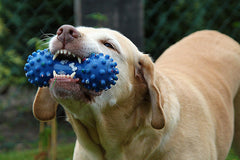
In modern health, we look to the holistic care approach as an option for ensuring the health of our feline. This is especially true as alternative or holistic medicine becomes readily available. Many may wonder which holistic health care option and treatments are the safest for cats. Here, we’ve rounded up some cat holistic medicine alternatives to look at.
Holistic Medicine For Cats

In order to holistically treat your cat’s health, you will need to find a holistic vet or practitioner. Your holistic practitioner will evaluate your cat in his or her entirety in order to treat for his or her health and possibly any diseases.
The practitioner will evaluate your cat’s diet, exercise habits, environment, signs of poor health, stress, and other issues to be considered. The practitioner will also treat your cat using holistic alternatives like therapies. Here are some alternative treatments your practitioner might discuss:
Acupuncture

Did you know? Veterinary acupuncture has been around in China for the last 3,500 years. Acupuncture works by stimulating specific points of the superficial muscles and skin with thin and sterilized stainless steel needles. It works through the central nervous system by relieving pain and improving function. The points may also be treated by moxibustion with the heat at the point, by using a low-power laser, or by injecting a water solution (also known as aquapuncture). Many cat owners will find acupuncture useful for bladder issues and nerve issues due to trauma.
Spinal Manipulative Therapy/Chiropractic Care

Veterinary chiropractic care, also known as spinal manipulation therapy, involves the movement of joints to correct spinal alignment. Chiropractic care also stimulates nervous system receptors, inhibits pain pathways, stimulates receptors of the nervous system, and restores your cat’s nervous system to function properly. When your cat gets a chiropractic adjustment, there is a sudden manipulation from the doctor’s hands.
When finding a veterinary chiropractic practitioner, find one who is certified by the American Veterinary Chiropractic Association, which is a certifying agent for doctors in chiropractic training. They will be Doctors of Veterinary Medicine or Doctors of Chiropractic. Talk to your regular vet and consult for a workup and referral. Many non-veterinarians are required to work under a licensed veterinarian to treat for chiropractic therapy.
Many owners bring their cats to a veterinary chiropractor to treat cats suffering from arthritis, pain in the joins, muscle spasms, neck pain, or main from injury/trauma as well as aiding treatment for metabolic issues.
Homeopathy

Homeopathy was founded over two hundred years ago and uses alternative remedies to treat signs of illness in animals. These remedies are to help stimulate the body’s natural defenses to help heal itself. With careful monitoring, many remedies are made from plants, animal substances, and minerals.
Many pet owners choose homeopathy for their cats suffering from allergies, skin issues such as alopecia, gastrointestinal issues, cancer, and respiratory issues. Though, there is a lot of research needed, only licensed veterinarians may practice homeopathy. Always consult with your regular veterinarian first before deciding on a homeopathic veterinarian to see if homeopathy is right for your cat.
What is holistic pet food?
How to holistically treat a cat's allergies?
Why is holistic care important?
Related Posts:
- Holistic Treatments for Aches and Pains in Your Dog
- Was Your Cat In A Fight? Try These 3 Holistic Treatments
- Cat Care: Three Hygiene Things You Absolutely Need To Know




